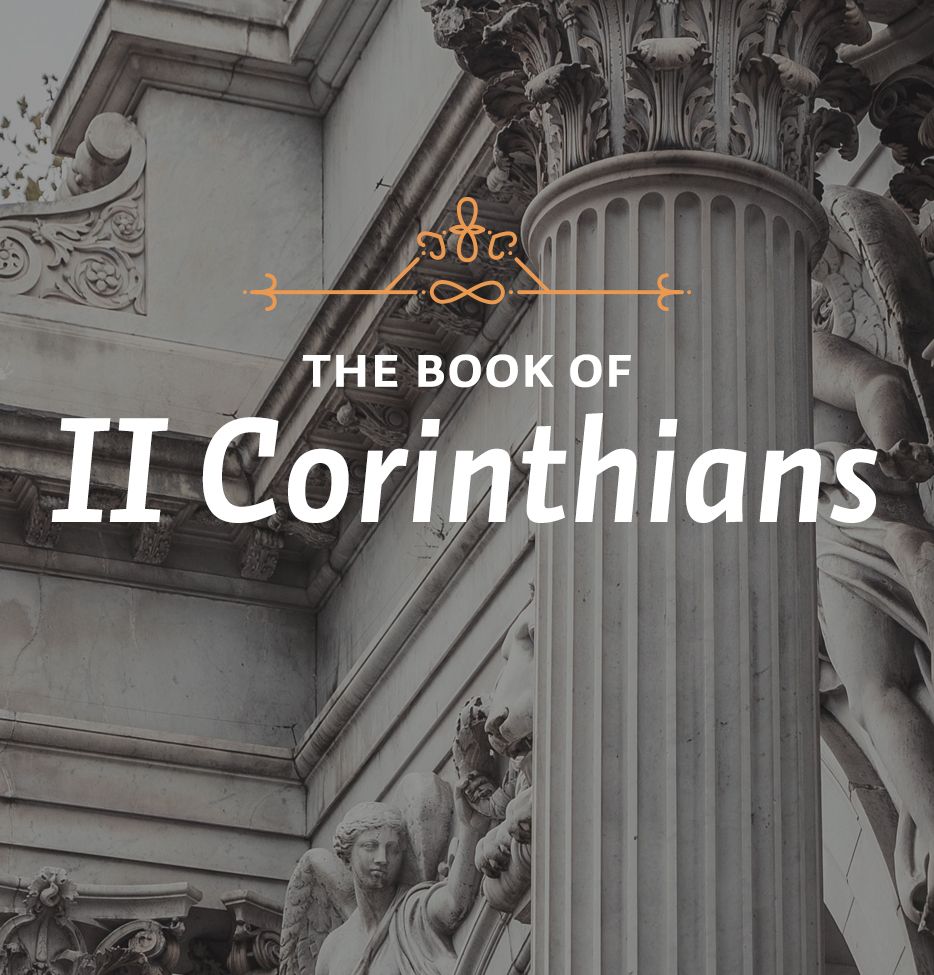I think there are two things that made Paul’s situation so difficult at this point. One is the hardship he had been through. I talked about opposition in another lesson; Paul had plenty of that. But it was not only opposition from without, from enemies; Paul experienced all kinds of physical difficulties as well. When we studied 2 Corinthians, chapter 11, we saw that Paul had been flogged, beaten, and imprisoned. He also underwent natural calamities, such as shipwrecks. Paul had gone without sleep and without food. When we read that list, we are likely to say, “We go through tough times, but we have never lived through anything as bad as that!”
Paul had gone to Corinth to found the church and he accomplished what he set out to do there. Great miracles were performed through him as the church was established. He had labored there for a considerable period, but after he moved on from Corinth, all kinds of problems came in. He went back once. It did not even solve the matter. And here he is, years later, much further on in his ministry, writing to the same people about the same problems with the same amount of discouragements. We discover as we go on in the letter that Paul was wondering whether some of those to whom he had ministered and who had apparently given profession of faith were really believers at all.
If at that point the Apostle Paul had said: “I have just reached the end of my resources. I have done everything I could. Who has done more? I have labored long. I have toiled with great difficulty. I have persevered to the very end of everything I can possibly do. But now, I quit.” – if Paul had said that, we would say, “Who can blame him? He did much more than any of us could possibly have done.”
And yet, as we come to the end of this letter it is perfectly evident that Paul was still striving, working, and laboring at the same problems that had concerned him all along. He was not ready to give up, and that was because God had not given up on Paul. In the latter portion of 2 Corinthians 12, we have a review of what had happened. Paul reflected on the past and what he had done when he was there at Corinth. Then Paul went on to articulate his future plans, which included another visit to Corinth. Having stated that, Paul resumed his focus on the problems of the present and expressed his concern for the church in this great city. With that outline of chapter 12 in mind, we will look briefly at the details.
First, as Paul reviews his past experiences in Corinth, he states that he had been present there with all of the marks of an apostle. Those included signs, wonders, and miracles. These occurred not only once or twice, but, as he wrote here, with great perseverance. He was reminding the Christians in the city of Corinth that when he was there, it was perfectly evident that God Almighty was authenticating his ministry.
That was the point of the signs, after all. Signs point to something. In the case of the Lord Jesus Christ, the signs and wonders he performed all pointed to the meaning of his ministry. John’s Gospel is particularly rich as it develops that aspect of signs. In the case of the apostles, the signs and the miracles were meant to authenticate them as messengers of God, those to whom the people should listen.
Nicodemus recognized this when he came to Jesus on the occasion recorded in the third chapter of John’s Gospel. Nicodemus came to Jesus and said, “Rabbi, we know you are a teacher who has come from God. For no one could perform the miraculous signs you are doing if God were not with him” (John 3:2). Nicodemus had very insightful acknowledgement of the purpose of the miracles – to authenticate the messenger–because that is the way in which the truth of God is known.
That is the position the apostles were in. The apostles went out into the Greek world where there were many conflicting religions and contrary claims to truth. Yet the power of God was on them to perform these signs, wonders, and miracles as an authentication of their message. That is what Paul is reminding the Corinthian believers of in this point in his letter. That is why Paul brought up the past in this letter – to remind them of the solid work that God had done.






